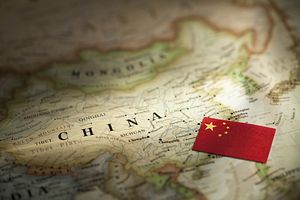By now, even causal Asia watchers know that the recent Shangri-La Dialogue in Singapore got a little testy. Japanese Prime Minister Shinzo Abe and U.S. Defense Secretary Chuck Hagel warned about China’s provocations and lack of respect for international law. China’s representative, deputy chief of the PLA general staff Wang Guanzhong, fired back, accusing the U.S. and Japan of coordinating their remarks to smear China.
While the accusations and counter-accusations on display at Shangri-La were predictable, they can still be useful in understanding an underlying problem — namely, China’s “China threat” theory. This idea, which is alluded to by Chinese officials throughout the Foreign Ministry and Ministry of Defense, suggests that nefarious forces in the U.S. and Japan are hyping the “China threat” to achieve their own political goals.
In the case of U.S. politicians, the motivation is assumed to be positioning candidates to win the next election, as one post-Shangri-La Xinhua commentary mentioned. Another theory goes that the “China threat” is an excuse to help defense industry insiders keep the power and prestige they gained during the Cold War by creating a new existential threat supposedly facing the U.S. Meanwhile, Chinese analysts assume that Shinzo Abe and his supporters have manufactured the “China threat” so that they can proceed with their long-held dream of remilitarizing Japan.
There may be some truth to these ideas, of course. But the problem with Beijing’s “China threat” theory is that is utterly discounts the possibility that other countries might actually feel threatened by China’s actions. Wang himself, speaking to Chinese reporters, dismissed the idea of a “China threat” as “completely baseless and completely without merit.” In other words, the “China threat” theory absolves the Chinese government of any and all blame for concerns stemming from the use of Chinese power, both economic and military.
To Chinese analysts, it’s self-evident that China’s rise will be a peaceful one (although with the caveat that China will defend “every inch” of its sovereignty territory). They look at China’s long history, one they see as devoid of invasions or imperialism, and believe it is inconceivable China could ever seek to abuse its power. Chinese officials apparently cannot imagine that other countries might not take this declaration of a “peaceful rise” at face value. The U.S. knows China is peaceful, the thinking goes, but it calls us “provocative” anyway. There must be political skullduggery afoot!
In actuality, there’s a far simpler explanation, albeit a much more uncomfortable one for Beijing: China’s message of a “peaceful rise” is no longer enough to reassure its nervous neighbors. While the domestic political advantages to be gained from hyping the “China threat” are real, Beijing should also acknowledge that at least some of the concerns are genuine. Faced with a rapidly growing China, the U.S. and regional players are uncertain about China’s ambitions. The uncertainty is real, as is the worry that it creates. But because Chinese analysts insist that the “China threat” is merely a political cover, they can avoid the heavy task of understanding and ultimately addressing the causes of regional concern.
To the president of China’s South China Sea think tank, Wang Guanzhong’s Shangri-La speech “sent a message that a growing China is not a threat to the world.” One look at U.S. or Japanese newspapers, where Wang’s speech was read as belligerent, would have proved that this message is not being received. Rather than dismissing the concerns of its neighbors as part of a political conspiracy, China should work to understand how its own actions contribute to the perception of a “China threat.”
No nation can ever totally reassure its neighbors as to its intentions and goals. But Beijing should at least recognize that its message of China’s “peaceful rise” is failing to get through to a number of its neighbors. Claiming, as Xi Jinping did, that Chinese people “have no gene for invasion” comes off as more disingenuous than reassuring.

































